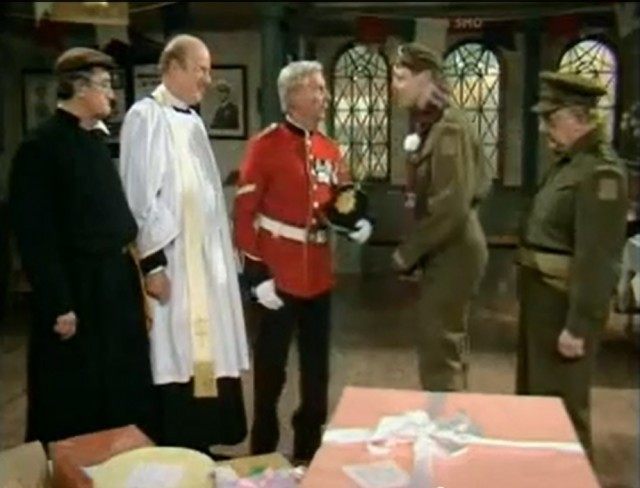A former soldier and active member of his local veteran community has written to the Home Office suggesting they make use of Britain’s thousands of former service personnel to keep the nations streets safe from terrorism.
Former Lance Corporal (L/Cpl) Malcolm Vickers, 70, who lives in Lancashire and served in the Loyal North Lancashire and East Lancashire Regiments between 1959 and 1970 wrote to Home Secretary Theresa May with his idea to re-create the Home Guard. While acknowledging many of his fellow soldiers who served in 20th century conflicts may not be as fit as they once were, they still have the training and knowledge to identify enemies hiding within British society.
Writing to Theresa May, L/Cpl Vickers said: “I am in touch with about 17 veterans groups here in Lancashire. There are 346 veterans as members. Out of these I think 98 veterans would be ideal for this modern variation of Dad’s Army.
“They would be suitable as a support group to any security or police detail at any public gathering. The veterans of England are a ready-made body of men who know which end is up in regard to spotting the bad guys”.
Speaking to the Express newspaper, Vickers said: “There are hundreds of army veterans who may not be as mobile as they once were but they have sharp eyes and sharp minds and that’s the main thing.
“The country’s resources are being stretched to the limit and we have something here which is as yet untapped. When Britain has been under threat at times in the past, it has relied on the Home Guard.
“My father served in the Great War and then served in Dad’s Army in the Second World War”.
The Home Guard grew out of the Local Defence Volunteers, a home army of men otherwise ineligible to join the armed forces who would stay behind and defend Britain from a feared German invasion. Many of the members were working in ‘reserved professions’, meaning they were doing jobs too important to the war effort, or were too old to go abroad to fight.
Observing the high average age of Home Guard members, the general public soon came to know them as ‘Dad’s Army’. After a period of conducting patrols in civilian clothes with improvised weaponry, the Home Guard units were slowly outfitted with uniforms and rifles, but stores were always in short supply as front line units had priority.
Shortages of equipment and scepticism towards the organisation by other auxiliary forces in the UK made perfect comedy fodder for the 1970’s BBC sitcom Dad’s Army, which remains one of the most watched television programmes in history.
Britain has a long history of what would today be called civilian paramilitary foundations, starting with the Napoleonic wars in the nineteenth century. The ‘Sea Fencibles’ was a reserve of fishermen who could be called upon by the Admiralty in times of war. After the Second World War, the Royal Naval Auxilliary Service and the Civil Defence provided a force of ‘civilians in uniform’, many of which had previous military experience and gave their spare time to serving the national interest.
After the services were stepped down the UK was left without any major civilian reserve force, unlike most European countries which maintain large bodies of trained civilian defence and emergency response volunteers.
Unfortunately the decision to scrap Civil Defence and the Home Guard don’t appear to be reversed any time soon. The Express reports L/Cpl Vickers’ letter to the Home Office received a reply from an official who informed him “I would like to thank you for your suggestion. However, the Government does not have any current plans to re-establish the Home Guard”.


COMMENTS
Please let us know if you're having issues with commenting.